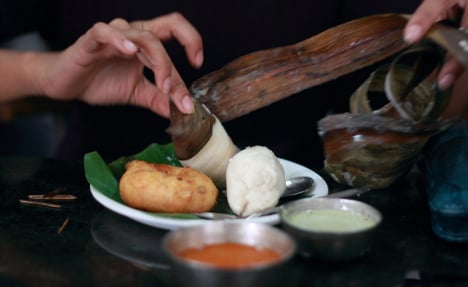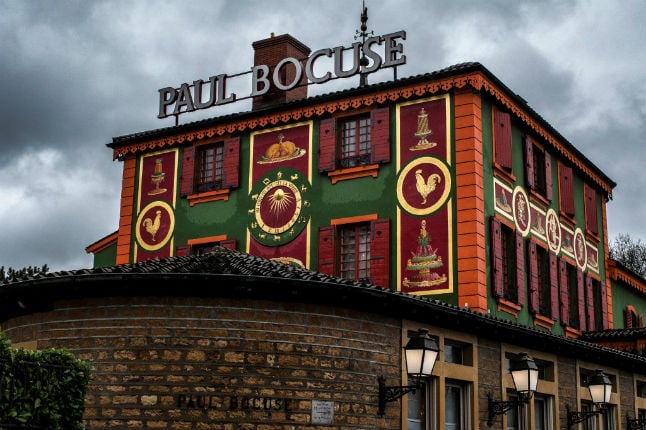For many expats, dining at Indian restaurants has become one of their favourite weekend activities, yet finding the right one has been a trial of patience for many.
Many of the Indians who move to Sweden choose their new local restaurant after reading reviews on the travel website Trip Advisor, which has listings for almost 1,900 Indian restaurants across Sweden. Or they rely on word of mouth. Many have been left grumbling about the chef's nationality, however.
"Having people from Bangladesh cooking Indian food can never give a good taste," says Aditya Bhushan, a senior software developer in Stockholm.
It's no secret that many Bangladeshi chefs have moved into the Indian eatery scene in Sweden, with Indian Garden's head chef Karim Rezaul telling The Local that the right spice mix was the secret recipe for success. And while Rezaul's restaurant got a big thumbs up from many expats, many of his compatriots have utterly failed to sway the Indians in Sweden.
“They do not have the right sense of Indian food,” says Priyanka Lekhwani, who works in finance, while another expat, who didn't want to give their name, succinctly summarized the complaint: "They have a flavour of theirs, sold under the name of Indian food.”
Noting the chef's provenance – Indian restaurants run by subcontinental neighbours – flowed like a strong undercurrent in the Indian expat community's criticism of the restaurant scene. But what exactly is wrong with the food?
For one, it has been altered to suit the Swedes' sweet tooth, they pointed out.
See expats' favourite five Indian restaurants in Stockholm
“Paneer lababdar, mushroom masala, or chicken tikka masala are spicy Indian dishes, but when they are served sweet, it turns out to be a nightmare,” says one expat.
Aviral Shukla, a software developer, loves his food. He has tasted the food at almost all of the Indian restaurants in and around Stockholm.
"Most of the dishes are tailored to meet taste of Swedish people," the gourmand tells The Local. "(It's) not the real Indian taste."
Nor does he like the decor or ambiance of most places.
"Just putting (up) a few antique pieces or Indian paintings on the wall does not make the place Indian," he says. "Most of the times when I visit an indisk restaurant, I feel disappointed."
But back to the food for a moment. Why not, Shukla queried, have two sections on the menus? One for authentic Indian dishes, and one for the adapted ones?
Behind the tidal wave of complaint, however, lay an understanding that restaurant owners had to make a living and cater to the Swedish market. Owing to commercial reasons, most of the Indian dishes were prepared as per the taste of the Swedes, which makes Indians unhappy, but does any restaurant get a passing grade?
Indian Garden topped the list.
"It's the only one that has a taste that's close to authentic," says Amit Ghai.
"Even more importantly, the ambiance is good," Aditya Bhushan says of the Mughal archways, purple walls, and burnt orange curtains.
Indian Garden was followed by Bollywood, Cardamom, Razmahal and Shanti.
Publishing the list of restaurants to which Indian expats gave the thumbs down would take too much time, The Local concluded. The expats did, however, give feedback on what the many subpar restaurants could do to up their game.
"Lots of chutneys…. Indian sweet and spicy sauces," says Shubhra Goel, who thinks condiments could go a long way in saving some of the more mediocre eateries.
Many of the expats also wanted new dishes to be added to the menu of the Indian restaurants.
"It's two kinds actually, the street food and the South Indian food," says Bhushan.
Many expats from the south of India said that the idli (a savoury fermented rice cake) and the dosa (an over-sized fermented pancake) were on their desired menu. Punjabi expats from India's north wanted dal makhani (black lentils with kidney beans), shahi paneer (cottage cheese curry) and various other cottage-cheese dishes.
Although the Indian expats gave unsatisfactory reviews to almost all the Indian restaurants in Stockholm, their love of Indian food has kept many trying more and more places.
"I WILL NEVER QUIT!" software developer and chutney-lover Goel concludes in an all-caps email.
Deepti Vashisht



 Please whitelist us to continue reading.
Please whitelist us to continue reading.
Member comments